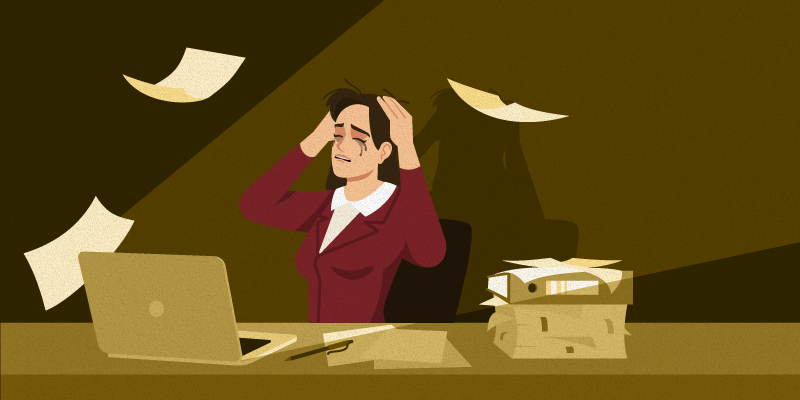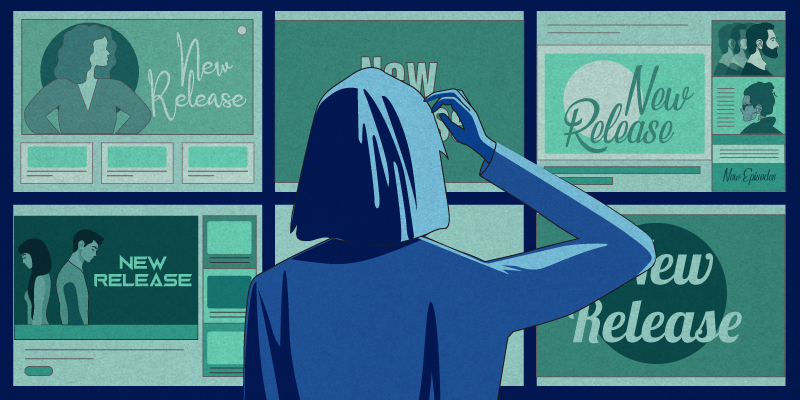As the founder and CEO of a startup, if there is one thing that you need to learn it is how to deal with failures and the everyday anxiety that comes with the job. It was something a 38-year-old founder and CEO had already read and heard about, but it was nowhere close to what he was prepared for.
“It is no secret that entrepreneurship is a tough ride and nobody in their right mind would willingly choose to do it. But it is still glamourised. That day, when I had a critical board meeting and nothing from the internet to the toilets were working in my small studio office, I couldn’t help but wonder – did I actually sign up for this? There was this strong sense that I was simply and spectacularly failing,” says a founder on condition of anonymity.
Failings and failures have always been associated with big events like a shutdown, operations breach or data breach, but those aren’t the only failings that an entrepreneur has to go through.
“Each day is about the decisions you make. Small, big, minuscule – it just doesn’t matter. Each of these decisions has an impact. It just isn’t about the impact on you, it is the impact on the people, the product, stakeholders, customers, and shareholders. For example, you decide to make a small change in a feature and you end up implementing that. Now, if the needle moves, you are happy, but if it doesn’t, the feeling of dread sets in,” says the founder of a startup in Bengaluru.

Image credit: Daisy
She explains that the probability of failing always seems higher. Echoing this sentiment, another founder of a delivery startup explains that the odds seem to always be stacked against you. And now the scenario has become worse.
“In the initial days of the lockdown, investors look at you and ask you what are your plans. Quite honestly, I wanted to tell them I have no idea or clue. But you just cannot afford to do or say that. And you need to make a call and look people through a video and tell them their salary is getting cut - But I want you to work 10x harder.”
“How can I inspire someone when I am not feeling that inspired? In some cases, you have you look at someone in the eye and tell them – you are great but we don’t need you because we have to cut costs. It is the worst possible position to be in. You know you are cutting off a livelihood and in some cases the one for a family, and there isn’t much you can do. No matter how much you blame the scenario, you cannot help but blame yourself,” the founder adds.
He adds, “There are days, I don’t want to get out bed. And the irony is, I haven’t slept a wink all night.”
How do you navigate these times? Psychologists have their views and opinions on what can be done.
Channel anxiety to motivate
Entrepreneurial anxiety and the struggles have been spoken about at length. Anxiety is an essential part of the human existence; it simply protects us from harm. In 1977, psychologist Rollo May was quoted as saying in a Harvard Business Review report,
”We are no longer prey to tigers and mastodons but to damage to our self-esteem, ostracism by our group, or the threat of losing out in the competitive struggle. The form of anxiety has changed, but the experience remains relatively the same.” In other words, even though humans today aren’t chased by predators, we are chased by uncertainty about the health of our loved ones, whether we’ll have a job the next week or next year, whether our company will go bankrupt — worries that provoke the same neurological and physical responses.
While this may seem bleak, according to the HBR report, the data shows that anxious people process threats differently and are known to use regions of the brain that is responsible for actions. People prone to anxiety tend to react quicker in the face of danger and are comfortable with uncomfortable feelings.
“In terms of team management, work-relationships are something from which people derive energy and motivation. It has been a challenge to maintain this energy, keep the morale up, and avoid feeling isolated when working remotely,” explains Dr Divya Kannan, Clinical Psychologist, Mind.fit.
The report added that when anxiety is channelled correctly, it can motivate teams to be creative, resourceful, productive, and creative. In many cases, it can also help create new bonds and break barriers.

Begin by facing your anxiety
“In any fight or flight response, especially in times of crisis, to flight seems so much easier and better. But then you learn the hard way that you cannot keep avoiding an employee, investor or a customer’s call. You have to face the music. You have to come up with the plan that you have been avoiding, and you have to look your employee in the eye and tell them this isn’t working,” says another 29-year-old founder.
As the HBR report says, if you don’t look at the anxiety and face it, it will take you down.
Divya explains that as all interactions are now digital, remote collaboration is the primary way for teams to interact with one another.
There has been a sense of loss and vacancy around having so abruptly lost the "physical workspace" for people's work identity, particularly for those who feel a sense of attachment to the office space and the routines that came with it.
Work and non-work boundaries overlap because there is no longer a physical separation of office and home. This leads to more restlessness, anxiety, and poor sleeping habits, because it's tougher to "switch off" from work when working from home. Managing this requires more intentional effort and self-care to keep the work-life balance in place.

Illustration: Aditya Ranade
ALSO READ

Also Read
Understand and identify your anxiety
The first step is to realise how your anxiety manifests and how it felt. The next step is to take action to manage it on a day-to-day basis, and then making the right decisions that help. And finally, seeking support.
The first step always begins by acknowledging the anxiety and being aware of it. As in the HBR report, Angela Neal-Barnett, an award-winning psychologist and author, to the book Soothe Your Nerves said, “When you say I am anxious, you can begin to address it. This gives you an understanding of how anxiety affects your behaviour and the subsequent decisions you make.”
Once you identify your anxiety, you can also identify when and why it happens. Once you identify what the triggers are, you can then identify why they affect you. This could be old issues, fears that you always had or insecurities that are manifesting in different ways and forms. The HBR report adds that you can then ask yourself: “How did I respond to that anxiety in the moment? And were those behaviours helpful or not? Did those behaviours fuel or alleviate my anxiety?”
There are also different physiological signs that determine anxiety - butterflies in your stomach, feeling nauseous, shortness of breath, are some examples.
Each individual has a different way of reacting to anxiety. Most entrepreneurs, according to sociologists and psychologists, end up taking on more work. And some even end up holding themselves to higher standards.
“It helps give us an illusion of control even when the situation is dire. There is a pandemic happening; we cannot control the recovery, lockdowns, cases etc. What we can control is the business, the projections and plans we can make,” explains another entrepreneur.
ALSO READ

Also Read
Control what you can
As the founder rightly put, most times there just is an illusion of control. The idea, however, is to understand what is in one’s control. As quoted in the HBR report, Rebecca Harley, a psychologist at Massachusetts General Hospital and Harvard Medical School, says,
“The goal is not to magically make things perfect. It is to learn how to surf the waves of distress successfully. Give yourself credit even if things don’t feel all the way better.”
The best way to begin controlling what you can is with time management or structuring your time. Several psychologists attest to the fact that one’s view towards how they value their time and organise it has a significantly positive impact on their mental health.
“A to-do list or task list helps me make sense of what needs to be done and how to plan my day. It helps me not get overwhelmed with several other things and focus on what is exactly needed,” says a 31-year founder of an ecommerce startup. It, however, is also important to not over or underschedule your time.
“One of the biggest stressors for me during this time has been looking at the cash flows, which had suddenly gone down to zero. It would always take me to a dark place and everything worse that could possibly happen, had already happened in my head. So what I would do is look at the small receipts that I could actually clear. It helped me focus on small, baby steps and wins,” says another founder.
Come back later
While it is all good to deal with your anxiety head-on, it isn’t possible all the time. It best is to get to it when you actually can deal with it. “Most times, I take notes and compartmentalise it all and then take it all to my therapist. Or make a quick call to a friend,” says another founder. He adds that it is also important to realise that anxiety can be contagious.
As Daniel Goleman, the psychologist and author of Emotional Intelligence, says – people pick up on others’ unspoken feelings.
“As a founder, you owe it to your employees and stakeholders to be able to hold the fort, especially in times of crisis. By snapping at people, or ghosting them or by hiding from them, it is just going to hurt your team. In such cases, I feel communication plays a key role. Talk to your team and that is possible only if you have built a relationship with them,” explains the founder.
Ensure that you have a strong support system. People need people to help them. Psychologists across the board have emphasised the importance to have a support system.
“I would like to ask every fellow founder to find friends and a support system that is away from your startup. Make time for yourself. Spend time with your spouse, boyfriend, girlfriend, better half, friend or someone who can just listen to you. Find avenues to help your startup. Founders tend to get sucked into their idea and business and make it their life. While that is great, it can be quite damaging,” says a founder.
She adds that while anxiety is part of the job, it need not be the job.
Edited by Kanishk Singh
Want to make your startup journey smooth? YS Education brings a comprehensive Funding Course, where you also get a chance to pitch your business plan to top investors. Click here to know more.
Link : https://yourstory.com/2020/09/ys-learn-startup-founders-anxiety-mental-health-entrepreneur
Author :- Sindhu Kashyaap ( )
September 08, 2020 at 06:15AM
YourStory


